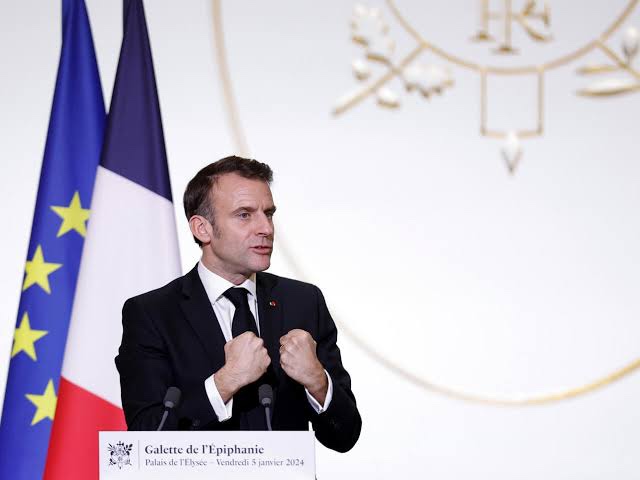Macron pushes for ‘revolutionary’ government amidst minimal changes

French President Emmanuel Macron urged his ministers to be “revolutionaries” during the first cabinet meeting under newly appointed Prime Minister Gabriel Attal. Macron’s move to bring in a fresh face and shuffle the ministerial roster is an attempt to reinvigorate his administration, hindered by the absence of an absolute parliamentary majority.
However, despite the reshuffle, key figures such as Finance Minister Bruno Le Maire and Interior Minister Gerald Darmanin retained their positions, prompting skepticism about the extent of the government’s transformation.
The conservative daily Le Figaro highlighted Macron’s attempt to create a spectacle while maintaining a core team reminiscent of the previous government. Questions arose about Macron’s reluctance to relinquish key figures who could potentially challenge him from outside the government, as noted by the left-leaning Liberation.
Criticism emerged over gender equity, as several prominent male ministers continued in their roles, leaving departing Foreign Minister Catherine Colonna to express concerns about the lack of consideration for women in key positions. Macron, who previously appointed women to critical ministries, now faced accusations of confining women to “gendered ministries.”
The establishment of two “super-ministries” spanning health, labor, solidarity, and education and youth raised concerns about the attention these crucial sectors would receive. Health professionals questioned whether the nomination indicated genuine prioritization of health or implied relegation to the background, with the president’s emphasis on boldness and transformation coming under scrutiny.
The reshuffle also drew attention to Macron’s perceived snub to women, adding to existing feminist outcry over his defense of Gerard Depardieu amidst sexual assault allegations. The announcement sparked discussions about the potential impact on France’s health and education systems, with critics questioning the significance and effectiveness of the new appointments.
While the government promises “stimulating working conditions” and pledges to continue previous reforms, concerns persist about the extent of transformation and boldness in the face of ongoing challenges in health and education. The appointment of figures like Rachida Dati to head the culture ministry adds further dimensions to the debate over diversity and representation within the government.












